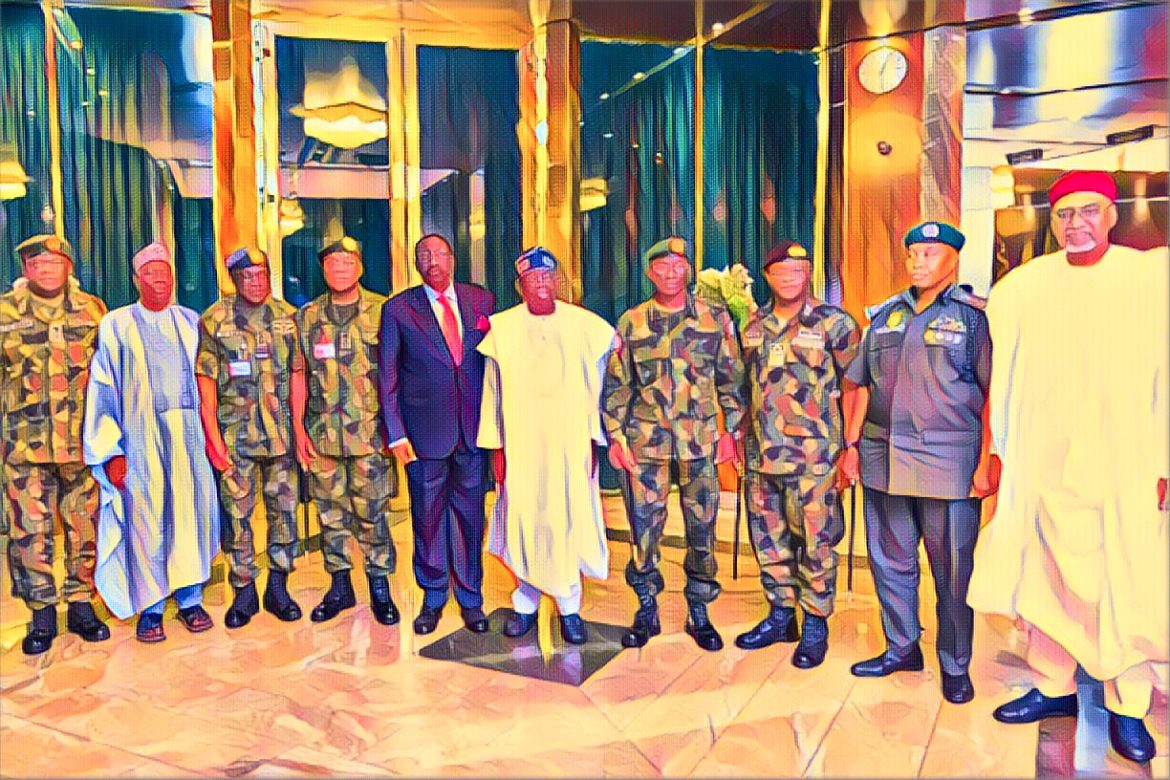In a determined response to the escalating killings and abductions in Nigeria, President Bola Tinubu convened a high-level security meeting on January 17, 2024, with top military and police officials. The meeting, held at the State House in Abuja, focused on devising strategies to eradicate the increasing threats of Boko Haram, banditry, and kidnapping across the nation.
Present at this critical gathering were key figures such as General Christopher Musa, the Chief of Defence Staff; Lieutenant General Taoreed Lagbaja, the Chief of Army Staff; Vice Admiral Emmanuel Ogala, the Chief of Naval Staff; Air Marshal Hassan Abubakar, the Chief of Air Staff; and Kayode Egbetokun, the Inspector General of Police. These leaders, along with other security agency heads, were tasked with reviewing recent security challenges and proposing effective solutions.
The urgency of the meeting was heightened by recent security breaches, notably in the Federal Capital Territory (FCT), where kidnappers have inflicted terror through violent acts and hefty ransom demands. The situation in Abuja and its outskirts had been particularly alarming, with frequent and indiscriminate kidnappings and robberies by bandits causing widespread insecurity.
Parallel to the President’s meeting, Nyesom Wike, the Minister of the FCT, also held a security appraisal meeting to address the kidnappings in Abuja. The details of the critical security decisions made at this meeting were not disclosed.
The Inspector General of Police, Egbetokun, emphasized the need for intensified efforts to combat kidnappers in the FCT. He convened a significant meeting with the police force’s management team and tactical squads, where he stressed the importance of a coordinated and intelligence-driven approach to tackle the evolving security challenges. ACP Olumuyiwa Adejobi, the police spokesperson, relayed the IGP’s concerns and directives for proactive measures to prevent criminal activities and ensure citizen protection.
Despite the grim security situation in the FCT, the police chief assured residents of improved conditions. He tasked the Deputy Inspector-General of Police, Department of Operations, with coordinating the upscaled security strategies to swiftly restore normalcy.
President Tinubu, addressing the nation, vowed to eradicate the remnants of Boko Haram, Ansaru, and other kidnapping gangs, stating, “We won’t rest until every agent of darkness is completely rooted out.” He acknowledged the significant challenges inherited from his predecessor, Muhammadu Buhari, but expressed determination to resolve them. This commitment was echoed in his speech at the launch of Femi Adesina’s book, where he praised Buhari’s efforts against terrorism and promised to continue building a vibrant economy and secure environment.
Meanwhile, Dennis Amachree, a former Director of the State Security Services (DSS), highlighted the need for equipping the police with advanced technology to effectively combat kidnapping. He criticized the government’s lack of involvement in kidnapping and ransom processes and the absence of adequate technological resources for the police.
Dr. Wilson Esangbedo, a former president of Private Security Practitioners, stressed the role of citizens in supporting the police by providing essential information. He noted that while the police have not failed, the lack of citizen cooperation has been a significant hindrance.
This series of meetings and statements signifies a robust and coordinated effort by the Nigerian government and security agencies to address the critical issue of national security, with a focus on countering the threats of Boko Haram, banditry, and kidnappings that have plagued the country.


